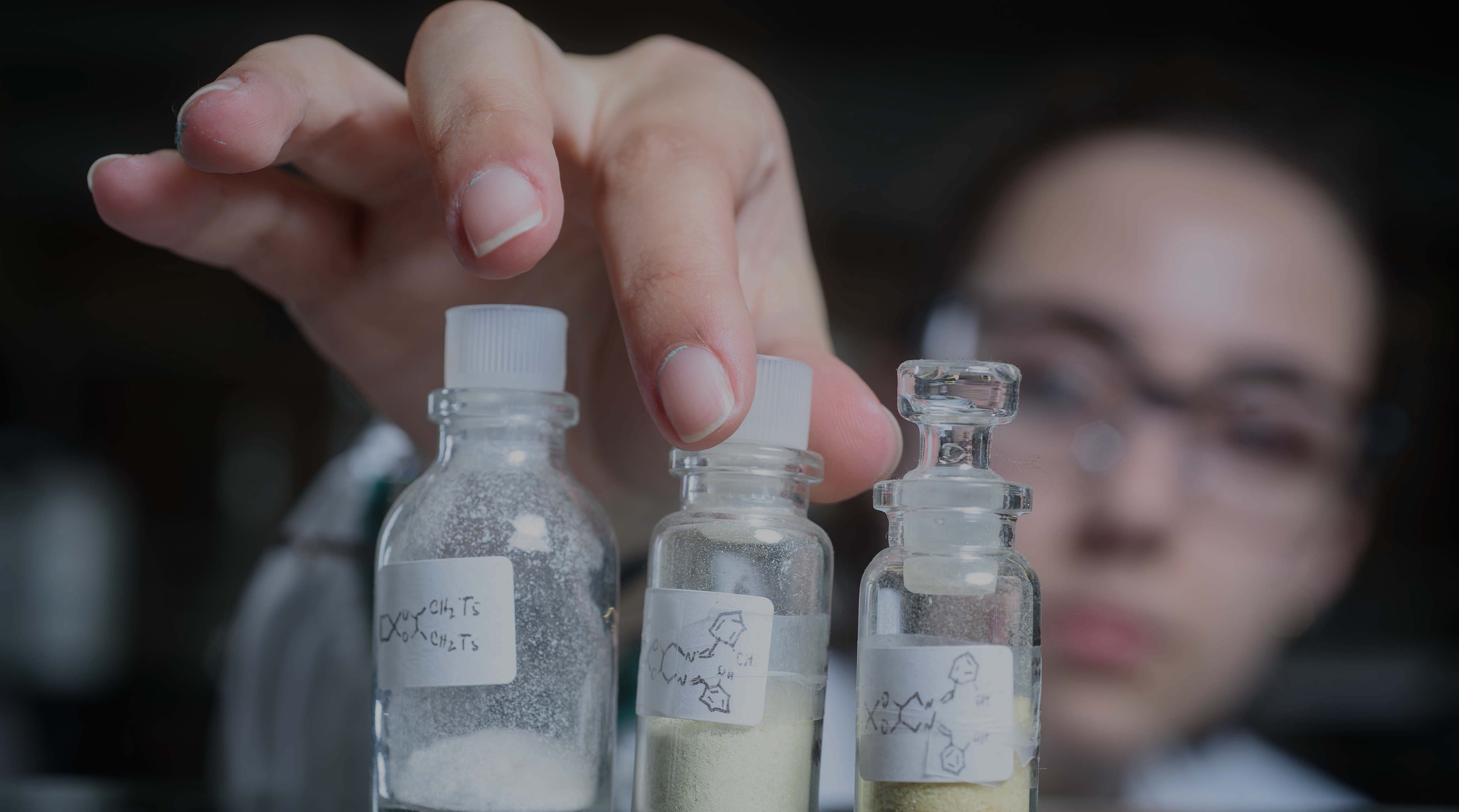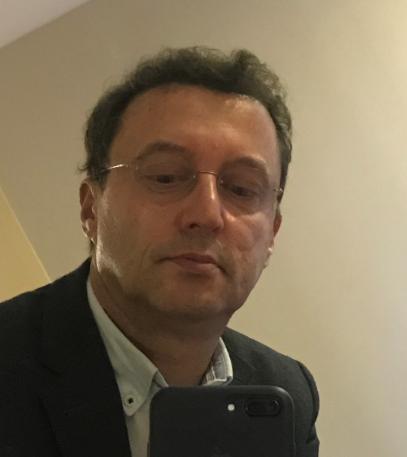 Rui Fausto is a Professor of the Department of Chemistry of the University of Coimbra, and a Visiting Researcher of the Istanbul Kultur University (Turkey). He was born in Coimbra, and graduated in Chemistry (1984) at the University of Coimbra. He obtained the Ph.D. in Sciences (Chemistry – Molecular Spectroscopy) in 1988, and was a post-doctoral fellow at the NRC Canada, where he works in infrared, Raman and resonance Raman spectroscopies of proteins. After his return to Coimbra, he started the installation of the first (and unique until now) Portuguese cryospectroscopy laboratory, the LMC. Rui Fausto is a member of the European Academy of Arts, Sciences and Humanities (Paris), integrates the Editorial Boards of several international scientific journals (he was the Editor-in-Chief of the Journal of Molecular Structure, Elsevier, Amsterdam, until December 2023), and is the President of the European Congress on Molecular Spectroscopy (EUCMOS) Steering Committee. Along his career he has occupied many different positions in the administration and scientific management in the University of Coimbra, including the presidency of the Academic Council and the vice-presidency of the Scientific and Directive boards of the Science and Technology Faculty and the presidency of the Institute for Interdisciplinary Research of the University of Coimbra. In 2004 and 2005, he was one of 12 Portuguese chemists awarded with the Excellence Prize of the Portuguese Science Foundation / Portuguese Ministry of Science. He is author or editor of >40 scientific books and author of more than 500 scientific papers and book chapters (h-index: 57). He has supervised a large number of students and was involved in over 50 competitive research projects, which correspond to a total funding of several millions of euros. His scientific interests are broad, including theoretical and computational chemistry, chemometrics, molecular spectroscopy and photochemistry.
Rui Fausto is a Professor of the Department of Chemistry of the University of Coimbra, and a Visiting Researcher of the Istanbul Kultur University (Turkey). He was born in Coimbra, and graduated in Chemistry (1984) at the University of Coimbra. He obtained the Ph.D. in Sciences (Chemistry – Molecular Spectroscopy) in 1988, and was a post-doctoral fellow at the NRC Canada, where he works in infrared, Raman and resonance Raman spectroscopies of proteins. After his return to Coimbra, he started the installation of the first (and unique until now) Portuguese cryospectroscopy laboratory, the LMC. Rui Fausto is a member of the European Academy of Arts, Sciences and Humanities (Paris), integrates the Editorial Boards of several international scientific journals (he was the Editor-in-Chief of the Journal of Molecular Structure, Elsevier, Amsterdam, until December 2023), and is the President of the European Congress on Molecular Spectroscopy (EUCMOS) Steering Committee. Along his career he has occupied many different positions in the administration and scientific management in the University of Coimbra, including the presidency of the Academic Council and the vice-presidency of the Scientific and Directive boards of the Science and Technology Faculty and the presidency of the Institute for Interdisciplinary Research of the University of Coimbra. In 2004 and 2005, he was one of 12 Portuguese chemists awarded with the Excellence Prize of the Portuguese Science Foundation / Portuguese Ministry of Science. He is author or editor of >40 scientific books and author of more than 500 scientific papers and book chapters (h-index: 57). He has supervised a large number of students and was involved in over 50 competitive research projects, which correspond to a total funding of several millions of euros. His scientific interests are broad, including theoretical and computational chemistry, chemometrics, molecular spectroscopy and photochemistry.
 António Jorge was born in Coimbra in 1972. He graduated in Industrial Chemistry in 1996 at the University of Coimbra. After graduation, he started his research activity in the Department of Chemistry of the University of Coimbra, having completed a master's degree in 2001 and a PhD in 2006, in the specialty area of Physical Chemistry. During this period, he was awarded research, MSc and PhD grants, by the Portuguese Foundation for Science and Technology. Since 2006, he is an assistant Professor at the Faculty of Pharmacy of the University of Coimbra. His main research activities have been focused on the study of photoinduced transformations, and in particular IR-induced conformational changes, of relevant biological molecules, combining matrix isolation FTIR spectroscopy and quantum chemical calculations. He has also been dedicated to the study of intra and intermolecular hydrogen bonding in systems of pharmaceutical interest.
António Jorge was born in Coimbra in 1972. He graduated in Industrial Chemistry in 1996 at the University of Coimbra. After graduation, he started his research activity in the Department of Chemistry of the University of Coimbra, having completed a master's degree in 2001 and a PhD in 2006, in the specialty area of Physical Chemistry. During this period, he was awarded research, MSc and PhD grants, by the Portuguese Foundation for Science and Technology. Since 2006, he is an assistant Professor at the Faculty of Pharmacy of the University of Coimbra. His main research activities have been focused on the study of photoinduced transformations, and in particular IR-induced conformational changes, of relevant biological molecules, combining matrix isolation FTIR spectroscopy and quantum chemical calculations. He has also been dedicated to the study of intra and intermolecular hydrogen bonding in systems of pharmaceutical interest.
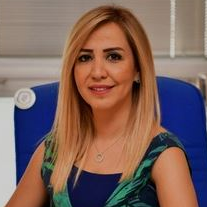 Gulce Ogruc Ildiz has a permanent position as Professor at the Physics Department Istanbul Kultur University (IKU, Turkey), and is researcher at the Chemistry Research Center at the University of Coimbra (Portugal). At IKU, she is the head of the Scientific Research Projects Unit and leader of the Molecular Spectroscopy Laboratory. Gulce Ogruc Ildiz obtained her PhD in Physics at the Istanbul Technical University and her postdoctoral training at the University of Coimbra. Her research interests center on applications of Raman spectroscopy, matrix-isolation spectroscopy, and theoretical and computational methods to organic chemistry, materials chemistry and biologically and biomedical relevant problems. She has been publishing regularly in high-impact scientific journals and acting as Guest Editor of several journals in the area of spectroscopy and materials sciences (e.g., Molecules, Spectrochimica Acta A, Journal of Molecular Structure, Frontiers in Materials).
Gulce Ogruc Ildiz has a permanent position as Professor at the Physics Department Istanbul Kultur University (IKU, Turkey), and is researcher at the Chemistry Research Center at the University of Coimbra (Portugal). At IKU, she is the head of the Scientific Research Projects Unit and leader of the Molecular Spectroscopy Laboratory. Gulce Ogruc Ildiz obtained her PhD in Physics at the Istanbul Technical University and her postdoctoral training at the University of Coimbra. Her research interests center on applications of Raman spectroscopy, matrix-isolation spectroscopy, and theoretical and computational methods to organic chemistry, materials chemistry and biologically and biomedical relevant problems. She has been publishing regularly in high-impact scientific journals and acting as Guest Editor of several journals in the area of spectroscopy and materials sciences (e.g., Molecules, Spectrochimica Acta A, Journal of Molecular Structure, Frontiers in Materials).
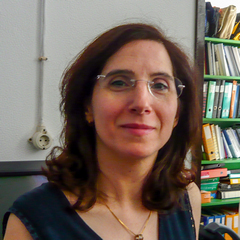 Licínia Justino graduated in Industrial Chemistry from the University of Coimbra in 1996 and obtained her PhD in Chemistry (Molecular Spectroscopy) from the same University in 2007. Her PhD studies were carried out both at the Chemistry (NMR Spectroscopy group) and Physics Departments (Computational Physics group) of the University of Coimbra. During this time, she also worked for a period at the University of Wuerzburg, Germany, carrying out research in inorganic computational chemistry. She was awarded several research scholarships from the Portuguese Foundation for Science and Technology, including a Scientific Initiation, a PhD and two Post-Doctoral scholarships. She was also awarded the Prof. Dr. António Jorge Andrade de Gouveia Prize. She is currently a researcher at the CQC, and her main research interests involve the application of molecular spectroscopy and quantum chemistry computational methods to the study of the structure and excited states of inorganic (metal complexes) and organic systems (conjugated organic polymers, conjugated polyelectrolytes and small organic molecules) designed for several applications, such as sensors, imaging, photovoltaic devices, light-emitting-diodes and other optoelectronic devices. In parallel with her research activities, she has also been involved in teaching various chemistry disciplines at the Chemistry Department of the University of Coimbra.
Licínia Justino graduated in Industrial Chemistry from the University of Coimbra in 1996 and obtained her PhD in Chemistry (Molecular Spectroscopy) from the same University in 2007. Her PhD studies were carried out both at the Chemistry (NMR Spectroscopy group) and Physics Departments (Computational Physics group) of the University of Coimbra. During this time, she also worked for a period at the University of Wuerzburg, Germany, carrying out research in inorganic computational chemistry. She was awarded several research scholarships from the Portuguese Foundation for Science and Technology, including a Scientific Initiation, a PhD and two Post-Doctoral scholarships. She was also awarded the Prof. Dr. António Jorge Andrade de Gouveia Prize. She is currently a researcher at the CQC, and her main research interests involve the application of molecular spectroscopy and quantum chemistry computational methods to the study of the structure and excited states of inorganic (metal complexes) and organic systems (conjugated organic polymers, conjugated polyelectrolytes and small organic molecules) designed for several applications, such as sensors, imaging, photovoltaic devices, light-emitting-diodes and other optoelectronic devices. In parallel with her research activities, she has also been involved in teaching various chemistry disciplines at the Chemistry Department of the University of Coimbra.
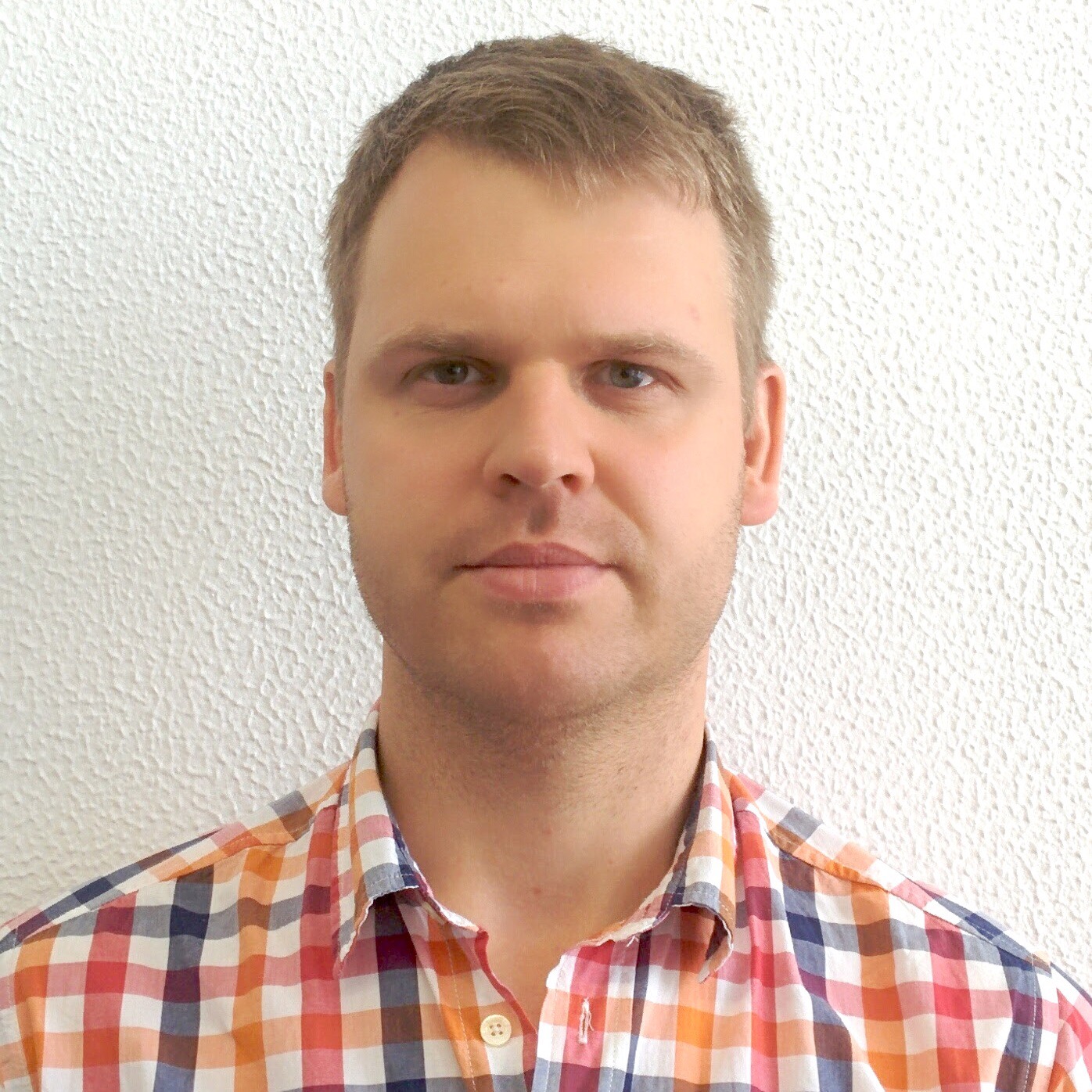 Timur Nikitin obtained his MSc degree in Physics at the Saint-Petersburg State University, Russia in 2006. He obtained his PhD degree in Chemistry from the University of Helsinki (Finland) in 2013, where he studied optical and structural properties of different nanomaterials, including silicon nanocrystals embedded in silica, and carbon nanotubes, by Raman spectroscopy and other optical methods. After his PhD, he participated in the investigation of optical and pyroelectric properties of self-assembled diphenylalanine microtubes at the University of Aveiro, Portugal and at Ural Federal University, Russia. He is currently a researcher at the CQC, where he is responsible for Raman measurements. His scientific activities center on the application of FTIR spectroscopy to study matrix isolation of light-induced conformational changes of organic species, including modeling of IR spectra by quantum chemical calculations. He is also an expert in the field of Raman spectroscopy of various nanomaterials.
Timur Nikitin obtained his MSc degree in Physics at the Saint-Petersburg State University, Russia in 2006. He obtained his PhD degree in Chemistry from the University of Helsinki (Finland) in 2013, where he studied optical and structural properties of different nanomaterials, including silicon nanocrystals embedded in silica, and carbon nanotubes, by Raman spectroscopy and other optical methods. After his PhD, he participated in the investigation of optical and pyroelectric properties of self-assembled diphenylalanine microtubes at the University of Aveiro, Portugal and at Ural Federal University, Russia. He is currently a researcher at the CQC, where he is responsible for Raman measurements. His scientific activities center on the application of FTIR spectroscopy to study matrix isolation of light-induced conformational changes of organic species, including modeling of IR spectra by quantum chemical calculations. He is also an expert in the field of Raman spectroscopy of various nanomaterials.
 Anna Luiza Brito was born in Cajazeiras, Brazil. She obtained her BSc degree in Industrial Chemistry at the Paraíba State University in Campina Grande in 2011. She finished her MSc studies in 2014 and obtained a PhD degree in Chemistry in 2018 at the Federal University of Paraíba. During the PhD studies, she also worked at the Federal University of São Carlos and at Embrapa Pecuaria Sudeste located in São Carlos, Brazil. She is experienced in the development and application of methods of chemical analysis using mass spectrometry (MS) as well as inductively coupled plasma MS (ICP-MS), near infrared spectroscopy, thermogravimetry, and in ICP atomic emission spectroscopy (ICP-AES) of different matrixes. As for data treatment, she is skilled in chemometrics. Presently, she is working at LMCB on the project QUANTUN “Quantum Mechanical Tunneling in Organic Chemistry: New Reactivity Paradigms and Avenues for Molecular Design”.
Anna Luiza Brito was born in Cajazeiras, Brazil. She obtained her BSc degree in Industrial Chemistry at the Paraíba State University in Campina Grande in 2011. She finished her MSc studies in 2014 and obtained a PhD degree in Chemistry in 2018 at the Federal University of Paraíba. During the PhD studies, she also worked at the Federal University of São Carlos and at Embrapa Pecuaria Sudeste located in São Carlos, Brazil. She is experienced in the development and application of methods of chemical analysis using mass spectrometry (MS) as well as inductively coupled plasma MS (ICP-MS), near infrared spectroscopy, thermogravimetry, and in ICP atomic emission spectroscopy (ICP-AES) of different matrixes. As for data treatment, she is skilled in chemometrics. Presently, she is working at LMCB on the project QUANTUN “Quantum Mechanical Tunneling in Organic Chemistry: New Reactivity Paradigms and Avenues for Molecular Design”.
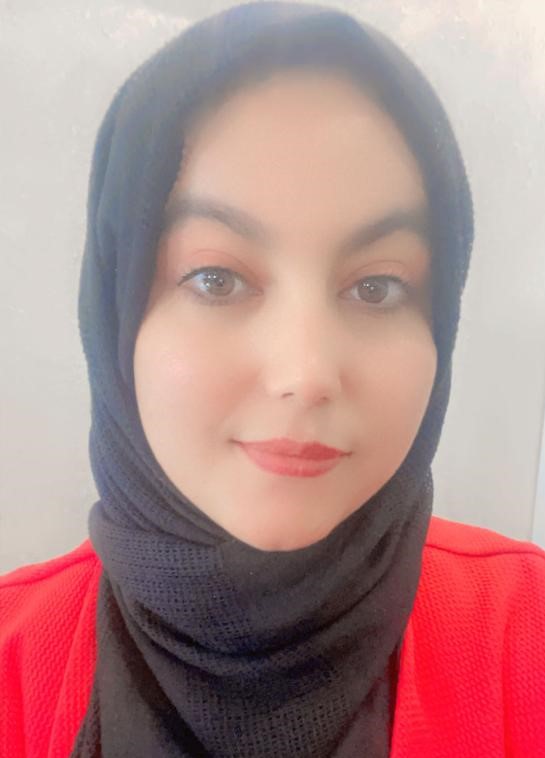 Hajer Bouznif was born in Medenine, in 1997, where she finished her pre-university studies. She graduated in Physical Chemistry in 2019 and finished her master's in inorganic chemistry in 2021 at the University of Sfax, Tunisia. After that, she began working on her PhD in Chemistry at the same institution, in collaboration with the University of Coimbra, on the topic of synthesis and characterization of metal complexes in view of their potential applications such as sensors, imaging, photovoltaic devices, light-emitting diodes, and other optoelectronic devices. Throughout the years, she has been distinguished with awards on multiple occasions, both during her BSc and MSc studies, and through her scientific dissemination (oral and poster communications).
Hajer Bouznif was born in Medenine, in 1997, where she finished her pre-university studies. She graduated in Physical Chemistry in 2019 and finished her master's in inorganic chemistry in 2021 at the University of Sfax, Tunisia. After that, she began working on her PhD in Chemistry at the same institution, in collaboration with the University of Coimbra, on the topic of synthesis and characterization of metal complexes in view of their potential applications such as sensors, imaging, photovoltaic devices, light-emitting diodes, and other optoelectronic devices. Throughout the years, she has been distinguished with awards on multiple occasions, both during her BSc and MSc studies, and through her scientific dissemination (oral and poster communications).
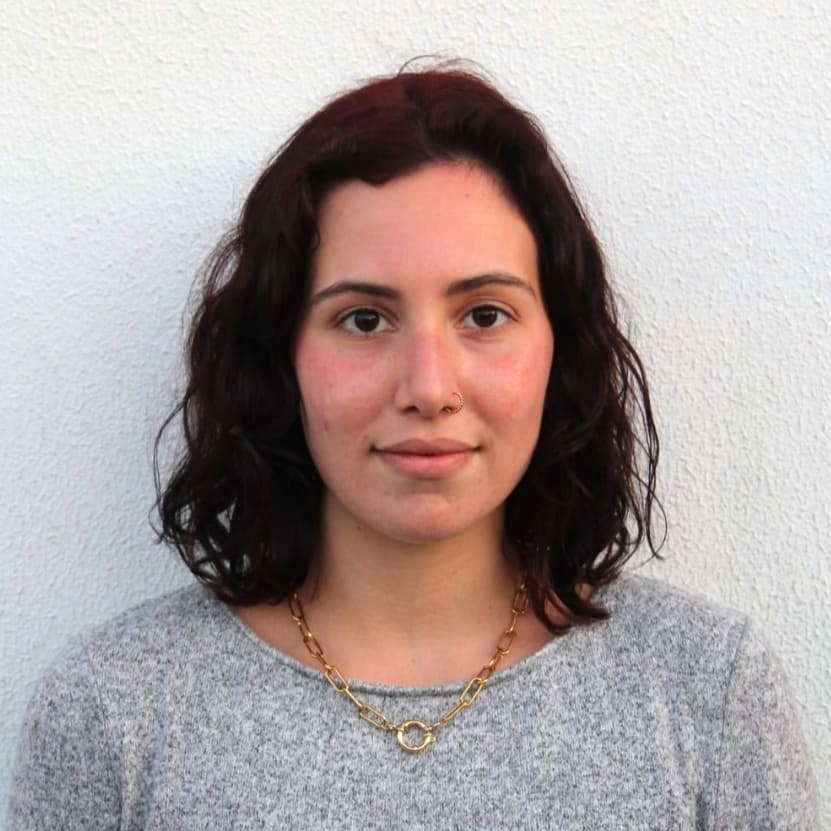 Sofia Braz was born in the year 2000 in Coimbra. She graduated in Chemistry in 2021 and obtained an MSc degree in Advanced and Industrial Chemistry in 2023. She is working on an internship, under the orientation of Professor Rui Fausto, Dra. Licínia Justino and Dr. João Pina, on the investigation of metal complexes using infrared and UV-Vis spectroscopies and computational calculations.
Sofia Braz was born in the year 2000 in Coimbra. She graduated in Chemistry in 2021 and obtained an MSc degree in Advanced and Industrial Chemistry in 2023. She is working on an internship, under the orientation of Professor Rui Fausto, Dra. Licínia Justino and Dr. João Pina, on the investigation of metal complexes using infrared and UV-Vis spectroscopies and computational calculations.
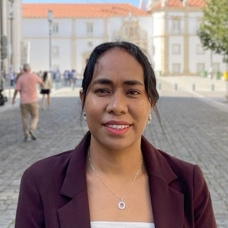 Margareta do Carmo was born in Ira-ara, in the interior of East Timor, in 1991. She grew up in the municipality of Lautém, completing her primary and secondary education in the same municipality. She obtained her Licentiate degree in the Natural Sciences and Mathematics course, with specialization in Chemistry, in a Brazilian federal public university, the Universidade da Integração Internacional da Lusofonia Afro-Brasileira (UNILAB), from 2012 to 2017. In 2022, she began her MSc degree in Chemistry, specializing in Quality Control and Environment at the University of Coimbra. Currently, under the guidance of Prof. Rui Fausto and Dra. Licínia Justino, her main research focus is on the synthesis and study of the structure and spectroscopic properties of transition metal complexes with alizarin derivatives for sensor applications.
Margareta do Carmo was born in Ira-ara, in the interior of East Timor, in 1991. She grew up in the municipality of Lautém, completing her primary and secondary education in the same municipality. She obtained her Licentiate degree in the Natural Sciences and Mathematics course, with specialization in Chemistry, in a Brazilian federal public university, the Universidade da Integração Internacional da Lusofonia Afro-Brasileira (UNILAB), from 2012 to 2017. In 2022, she began her MSc degree in Chemistry, specializing in Quality Control and Environment at the University of Coimbra. Currently, under the guidance of Prof. Rui Fausto and Dra. Licínia Justino, her main research focus is on the synthesis and study of the structure and spectroscopic properties of transition metal complexes with alizarin derivatives for sensor applications.
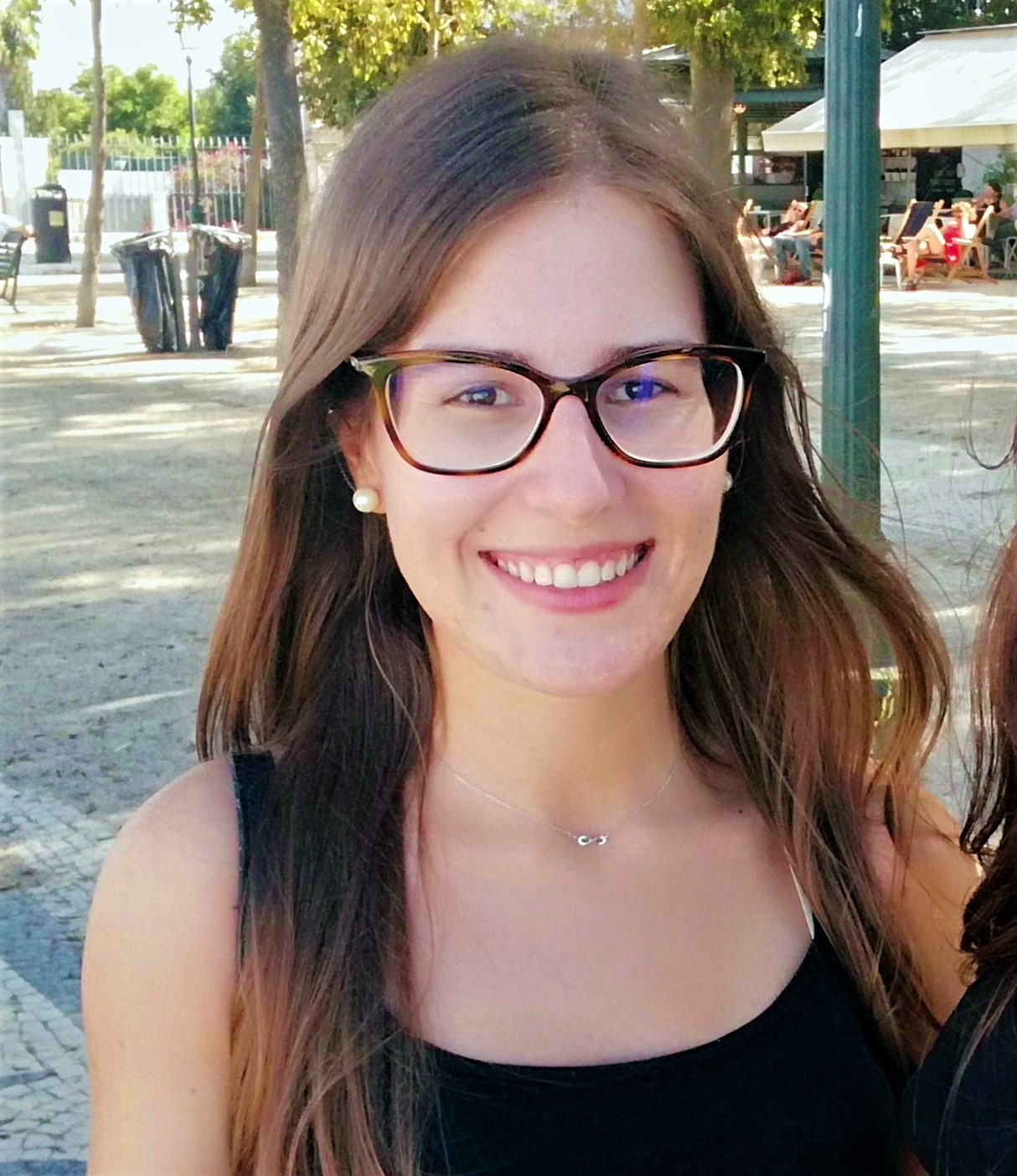 Cecília Madeira was born in Coimbra, in 1996. She obtained the BSc in Chemistry in 2020, at the University of Coimbra. Presently, she attends an MSc in Chemistry, with specialization in Quality Control and Environment, at the same institution. She is working on her thesis project, whose objective is the synthesis and characterization of metallic complexes with potential application for sensors and optoelectronics. In her project, she is using Fourier Transform IR spectroscopy with Attenuated Total Reflectance, UV-visible and fluorescence spectroscopies, Nuclear Magnetic Resonance spectroscopy and Density-Functional Theory calculations.
Cecília Madeira was born in Coimbra, in 1996. She obtained the BSc in Chemistry in 2020, at the University of Coimbra. Presently, she attends an MSc in Chemistry, with specialization in Quality Control and Environment, at the same institution. She is working on her thesis project, whose objective is the synthesis and characterization of metallic complexes with potential application for sensors and optoelectronics. In her project, she is using Fourier Transform IR spectroscopy with Attenuated Total Reflectance, UV-visible and fluorescence spectroscopies, Nuclear Magnetic Resonance spectroscopy and Density-Functional Theory calculations.
